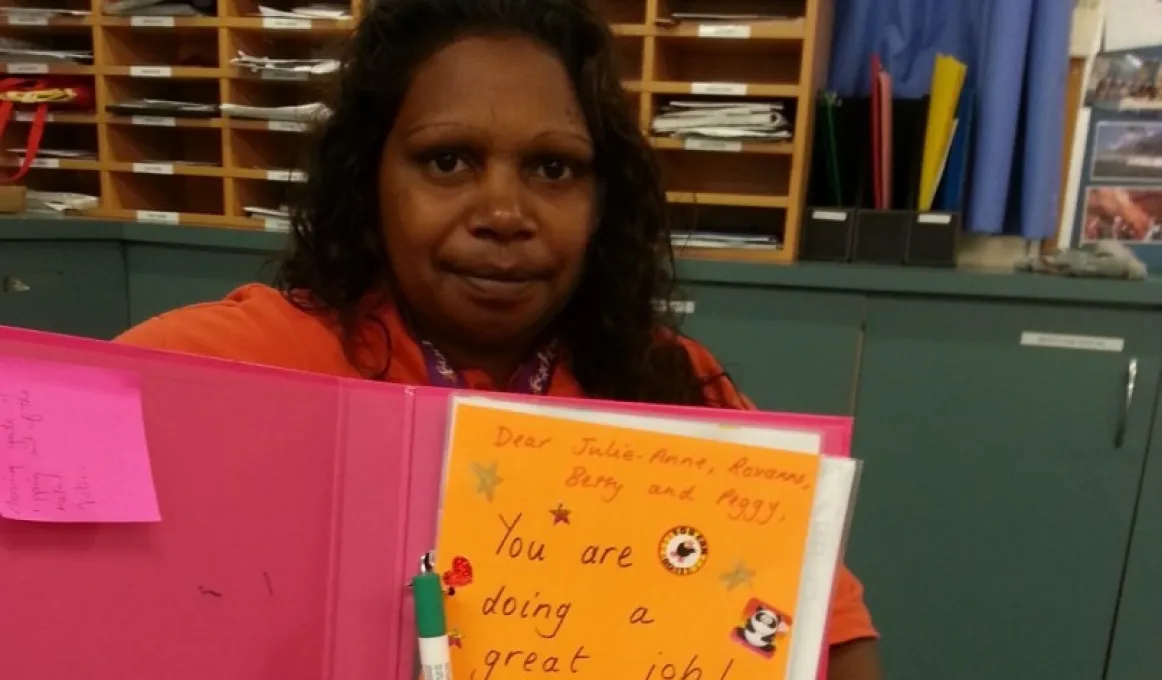Remote Mimili becomes centre of attention

Mimili may be a remote community but it’s quickly becoming a centre of education as local children embrace a new love of learning.
Mimili may be a remote community but it’s quickly becoming a centre of education as local children embrace a new love of learning.
Located in the APY Lands of South Australia 70 kilometres of dirt track west of the Stuart Highway and 380 kilometres south of Alice Springs, Mimili, has faced issues related to poor school attendance for years.
Locals knew that the community’s children needed to be at school every day if they were to become strong leaders but lacked the resources to take action.
Mimili resident Julieanne Campbell was one of the concerned locals who knew that committed action was required.
“Last year I saw a lot of kids hanging around when they should have been in school and I thought ‘They should get someone to keep those kids at school’ so when I saw the ad for the Supervisor position, I realised I could be that person,” Julieanne said.
Now as School Attendance Supervisor at Mimili Anangu School, Julieanne manages three School Attendance Officers, all community members who share her concerns about the need for local children to attend school every day.
Julieanne and her staff have a hectic day, starting at 8:00am when they walk around the community supporting families in helping kids get to school.
“At 8:30am we check the rolls and if kids are absent we go around their houses and pick them up,” Julieanne said.
“We write the attendance reports at 9:00am, and then check the classes again. If kids have run away we go back and visit their houses again. Then after lunch we do it all again and prepare a daily report on attendance.”
While it’s hard work, Julieanne and the community are seeing benefits.
“It’s getting easier to get kids interested in school,” Julieanne said.
“The School Attendance Officers are enjoying their jobs, supporting the kids, and many community members also want to be involved.”
School Principal Louka Parry has also seen a very positive response to the attendance plan.
“I have found that awareness of the importance of school attendance in the community has greatly increased and there is now a developing sense of urgency about education and attending school,” Louka said.
“Working collaboratively with Julieanne and her team on attendance allows the teachers to concentrate on teaching and the core business of schooling, which has obvious benefits for the students’ learning.”
Julieanne, who has three young children of her own, knows that what she does now will have an important long-term effect on Mimili.
“Like all parents, I want my children to succeed in life and for that to happen they need to be encouraged to go to school every day so they can get good jobs in the community and raise their own family in the future,” Julieanne said.
Find out more
Getting children to school is the Australian Government’s number one priority for Indigenous children and their families. That’s because going to school and being at school every day gives every child the best chance for a good start in life.
The Remote School Attendance Strategy is about working together – with schools, families, parents, and community organisations – to ensure all children go to school every day.